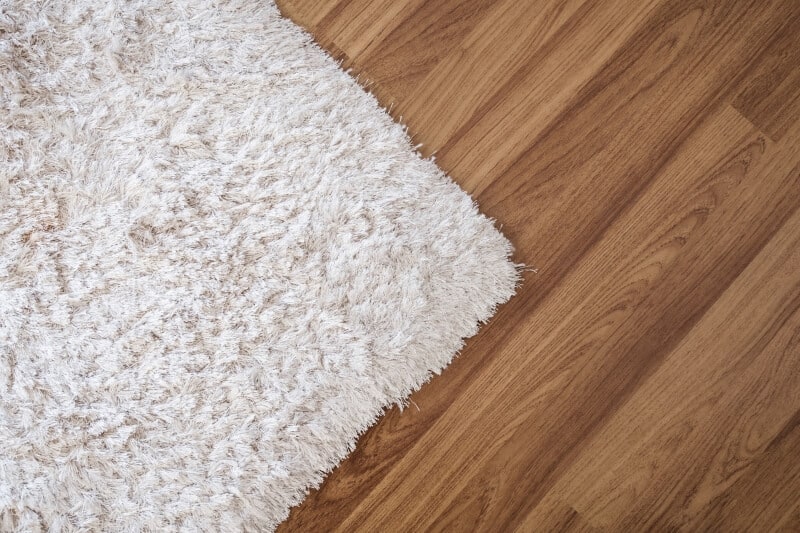Hardwood floors or vinyl – which is better?
If a renovation is pending or a new house has to be fitted out, sooner or later the question of the right floor covering will always come into focus.
The range of floor coverings is large. Parquet flooring in particular, as well as vinyl, are at the very top of the popularity scale here. Whether parquet or vinyl flooring is the better solution depends on the circumstances and personal preferences.
There are essential distinguishing features and pre– or disadvantages which you should consider when making your decision.
Solid wood floorboards are a must for nature lovers
Especially if you decide on solid wood parquet, you get a product with a very high value.
Because parquet of this type consists exclusively of real wood. Therefore, parquet made of solid woods is virtually a must for nature lovers.
This is ultimately also reflected in the natural appearance and the corresponding feel. When you touch the parquet, it feels warmer than vinyl.
Nevertheless, vinyl is also considered warm to the feet. In comparison to tiles or to the laminate, this is also quite true. But real wood always feels warmer than plastic-based vinyl.
In addition, parquet always provides a more homely and comfortable atmosphere than the rather sterile and cold-looking vinyl.
Parquet can be repaired and renovated in contrast to vinyl
Parquet floors, however, are not only convincing with their visual attractiveness and haptic advantages. In fact, parquet also has an extremely long life span.
Because you can sand down parquet floorboards several times if they are scratched or in need of renovation. However, this is of course always associated with a lot of effort and corresponding costs. In addition, it is more difficult to replace individual laying units in the case of parquet. This is particularly the case if parquet has been glued with parquet adhesive.
You can basically choose between oiled or lacquered parquet floorboards or strips.
oiled parquet reduces residential and kitchen odours or the smoking odour of cigarettes. In an apartment these odours are partially absorbed.
Vinyl floors cannot offer this.
Parquet or vinyl: vinyl focuses on versatility
A vinyl floor, on the other hand, is particularly impressive because of its versatility. Since the material is quiet, warm to the feet and suitable for damp rooms, a vinyl floor is a good solution for many rooms. Especially in kitchens and bathrooms, floors of this type are preferably laid.
A distinction must be made between vinyl coverings for gluing, for loose laying and with integrated kick system.
A vinyl floor has only a low construction height of sometimes not more than five millimetres.
In addition, it can also be placed directly on existing or old coverings if required. Vinyl can be easily processed and cut to size with a cutter knife.
Therefore vinyl is also well suited for renovation or refurbishment.
No naturalness: Vinyl is made of plastic
You should, however, be aware that vinyl is an artificial material that is made of plastic.
So anyone who does not want to do without the naturalness and closeness to nature of real wood parquet should keep their hands off vinyl.
However, there are also vinyl decors that are based on natural wood types.
At least at first glance, the vinyl floor cannot be distinguished from real wood planks.
With high-quality vinyl versions, both the wood grains and the natural wood structure are sometimes deceptively real.
The advantages of vinyl over parquet
- Vinyl is extremely durable and robust; it is designed for high stress.
- As a material, vinyl is water-repellent. Therefore, vinyl is also suitable for use in wet rooms.
- Even the basic composition of vinyl is extremely low-noise within the framework of a multi-layer structure. The effectiveness of the impact sound insulation always depends on how many layers are present and the nature of the layers.
- Vinyl can be cleaned comparatively easily and quickly cleaned and maintained. You can vacuum the floor as well as wipe it wet. For people who are, for example, allergic to house dust mites allergic, this flexibility in cleaning is of great advantage.
- Vinyl offers you a wide range of decors in wood look and tile look.
- Due to its low installation height, vinyl is better suited for underfloor heating than parquet. The heat passes through the material more quickly, which means that the heating phase is shorter than for parquet.
The advantages of parquet over vinyl
- Vinyl is not a natural product. Parquet, on the other hand, shines precisely through its naturalness.
- Parquet offers more atmosphere, cosiness and homeliness.
- Although a vinyl floor is extremely robust and therefore durable, if damage does occur, the entire floor covering usually has to be replaced. There is hardly any possibility to renovate the floor or the damage. This is only possible with certain types of vinyl. Parquet flooring, on the other hand, can be sanded down or, for example, re-oiled.
- For vinyl, always pay attention to the manufacturer and the country of production. Because there are plenty of questionable cheap goods from outside the European Union (EU). Apart from the differences in quality, the cheap variants may still contain plasticizers that are hazardous to health. German manufacturers, on the other hand, adhere strictly to the corresponding control obligation and use only harmless ingredients. These problems do not exist in the parquet sector.
- Vinyl still has a disadvantage compared to parquet. Although this has nothing directly to do with the laying of vinyl in your own home or even in business premises, it should nevertheless be taken into account when it comes to the question of whether parquet or vinyl is the better solution for the individual. Because vinyl has the shortcoming of being disposed of in an environmentally harmful way. The material can finally be disposed of exclusively in incinerators.
* Last updated on 2024-07-27 / We are using affiliate links / All images are served from the Amazon Product Advertising API.
Table of Contents




